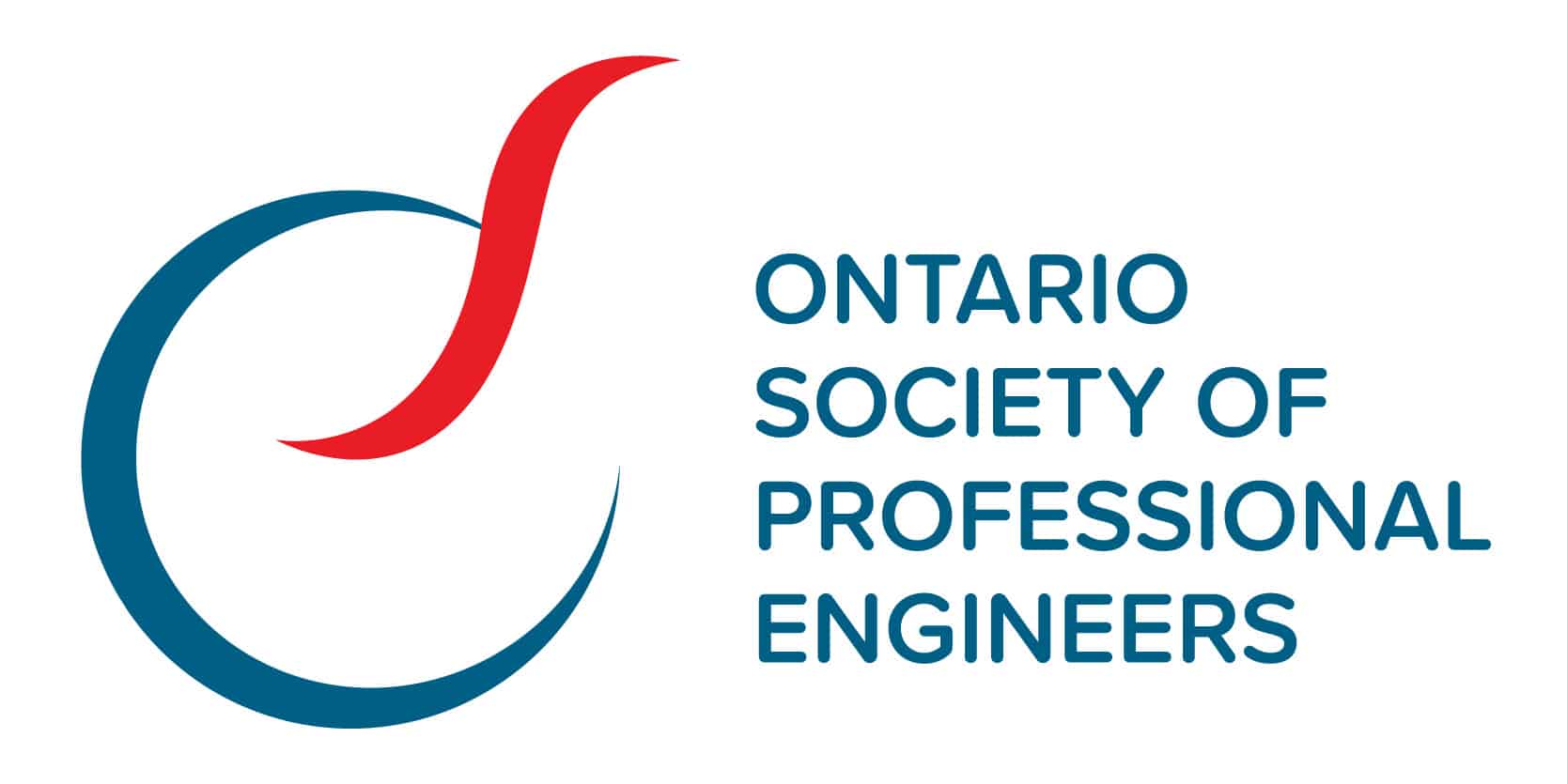
Empowering Engineers: Insights from Liane Catalfo, President of the University of Toronto’s Engineering Alumni Network & P. Eng. at Deloitte
Continuing through National Engineering Month, we’re shining a spotlight on influential leaders in Canada’s engineering domains to understand their ongoing vision for the industry.
Recently we spoke with Liane Catalfo – a two-time graduate of the University of Toronto’s Faculty of Applied Science & Engineering having completed both her Bachelor of Applied Science and Master of Engineering there. She is also a Senior Manager at Deloitte and serves as President of the Engineering Alumni Network at the University of Toronto.
Can you tell us about your journey from completing your Bachelor of Applied Science to pursuing a Master of Engineering at U of T? How did the MEng degree fit into your career aspirations?
My name is Liane Catalfo, and I am a chemical engineering graduate from the class of 2008+PEY. I also completed the MEng program in chemical engineering in 2010. I became interested in engineering after attending a women in engineering event during high school supported by the University of Toronto. I learned that engineers help make the world a better place by solving some of the most challenging issues, and I was instantly hooked by the impact engineers can have. The skills I would learn as an engineer, as well as the strong sense of community at the University of Toronto’s Faculty of Applied Science & Engineering, appealed to me greatly. I was thrilled and grateful when I received my acceptance letter.
Throughout my time as an undergraduate in the Department of Chemical Engineering & Applied Chemistry, I learned life-long skills and made lasting connections both inside the classroom and outside, while having fun. These skills included structured problem-solving, analytics, and teamwork.
As I approached graduation, I wanted to continue my learning journey and thus decided to pursue my Master of Engineering at the University of Toronto. I had the desire to expand on those skills I had learned in undergraduate, with a particular interest in learning the business side of engineering, including, for example, project management, financial modelling, communication, and business development. Through the Master of Engineering program, I continued to expand my network and learn new skills that allowed me to secure a job I was very excited about post-graduation.
As someone deeply involved in the Engineering Alumni Network and with a successful career at Deloitte, how do you believe staying connected to U of T Engineering has contributed to your ongoing professional development?
Staying connected with the University has helped me primarily in two ways. Firstly, it has allowed me to meet incredible alumni from various disciplines and different graduating years, living all across the globe. I would never have had the opportunity to meet such remarkable alumni. They have provided me with new perspectives that have expanded my thinking and enabled me to think globally.
Secondly, it has facilitated my ongoing professional development by giving me insight into the skills that the engineering Faculty teaches its students. This has allowed me to consider what younger generations are learning and how to apply those skills in my current work.
In your role as President of the Engineering Alumni Network, what initiatives have you implemented to foster lifelong learning within the alumni community?
The Engineering Alumni Network has a history of incredible Board members who have implemented initiatives that have supported engagement and fostered lifelong learning within the alumni community. In my role as President, my focus has been to continue to strengthen existing initiatives that are having an impact and introduce new initiatives that support the Faculty, student, and alumni community.
As mentioned earlier, I’m passionate about continuous learning and education, and the MEng program is close to my heart as a graduate of this program. One initiative I’m involved in is supporting the engagement of alumni in the MEng program to foster connections, support professional development, and provide employment opportunities. This involves collaborating with the Faculty to integrate alumni more deeply into the program. Another initiative I’m supporting with my fellow Board members and the Alumni Relations Office is revitalizing our Engineering Alumni Network awards, which recognize exceptional Alumni.
The last notable initiative we as a Board are continuing to focus on is the Engineering Alumni Network Global Ambassador program, so that we remain connected to our alumni worldwide.
How do you see the concept of lifelong learning evolving in the engineering field, and what role do alumni networks play in facilitating this evolution?
One aspect I love about engineering is that we learn how to think through problems by applying analytical skills and working in teams. I’ve witnessed many alumni utilize these skills to launch and accelerate their careers in various engineering fields. Additionally, I see the role of alumni networks in supporting the evolution of academic programs to align with current trends and market demands, ensuring that students are educated and equipped to meet the needs of the industry and excel.
Can you share some examples of how your Master of Engineering degree has directly influenced your career path and your role as a Senior Manager at Deloitte?
Firstly, throughout my Master of Engineering degree, I made a deliberate choice to focus on the business aspect of engineering. This emphasis has proven invaluable in my current role as I support clients solve some of their most significant challenges by considering, for example, the financial sustainability of new solutions, user needs and adoption, and measures of impact.
Secondly, my engineering degree has profoundly impacted my career trajectory through the network and connections I cultivated during the program. It exposed me not only to individuals within my field of chemical engineering but also to professionals from various disciplines across the university, including the Rotman School of Business and others. Many of the connections I made during my Master’s program remain in touch, despite us pursuing different career paths. This network provides ongoing opportunities for learning and growth.
What advice would you give to recent graduates or current students about the importance of continuing education and professional development throughout their careers?
I believe that one can never have too much knowledge, especially considering the ongoing evolution and change in various industries. How do you stay updated on industry trends? Keeping abreast of these developments ensures that you can contribute effectively to your workplace or the clients you serve, offering forward-thinking guidance that is both cutting-edge and sustainable.
Moreover, it’s not just about acquiring hard skills; as mentioned before, the connections forged through these experiences are invaluable. Through continuing education and professional development opportunities, you also have the chance to connect with others engaged in similar or different types of work. This networking enables ongoing learning and personal growth.
In what ways have you personally benefited from engaging in lifelong learning, both academically and professionally?
On the academic side, lifelong learning has enabled me to stay current with both technical skills and foundational concepts. Whether it’s mastering a new programming language like SQL or understanding essential principles such as project management, this ongoing education has equipped me to successfully tackle tasks and deliverables in my professional career.
Professionally, engaging in lifelong learning has broadened my perspectives through interactions with diverse individuals, both within my workplace and beyond. This continual exposure to different viewpoints enhances my problem-solving approach, fostering continual evolution and growth. Staying abreast of trends allows me to provide informed advice to clients.
How do you balance the demands of a busy career with ongoing learning and professional development?
One of the benefits of a busy career is the continuous learning embedded within it. Rarely are tasks repetitive; instead, you’re consistently presented with new challenges, whether it’s solving novel problems or finding ways to enhance efficiency through AI. Moreover, there’s a constant drive to improve and deliver greater value to clients, necessitating ongoing evolution and adaptation.
Professional development is deeply ingrained within a career, but it’s also essential to actively seek growth opportunities. Whether it’s participating in lunch-and-learn sessions, attending talks, or formally enrolling in courses, it’s crucial to pursue learning in areas of interest.
Could you discuss any specific challenges you’ve encountered in promoting lifelong learning within the engineering alumni community, and how you’ve addressed or overcome them?
For me, it’s all about finding that balance between dedicating time to lifelong learning and fulfilling other life commitments such as careers, families, and personal interests or passions. This, I believe, is the most significant challenge.
Within the Engineering Alumni Network, we constantly consider how our engineering and alumni community prefer to engage in learning opportunities. Do they prefer digital platforms and virtual talks, or do they value in-person events to connect? Whether it’s regional events, campus gatherings, or online sessions, understanding the learning needs and preferences of the community is essential for tailoring our programming effectively.
As someone who has demonstrated a commitment to paying it forward, what strategies do you employ to inspire and encourage others to engage in lifelong learning and give back to the engineering community?
I’m passionate about continuous learning and engineering, and love sharing stories about my experiences while learning and listening to others. The engineering community has given me so much that it’s truly an honour for me to give back to it in any way I can.
Learn. Grow. Thrive. Together.
National Engineering Month is Ontario’s platform for celebrating the remarkable world of engineering. With a dynamic mix of insightful discussions, industry expertise, and diverse viewpoints, we’re showcasing the best of the profession. Join us in advancing engineering excellence, igniting interest in future professionals, and recognizing the vital role engineers play in society. Be a part of the #NEM2024 experience by attending an event. Explore all the exciting details at nemontario.ca.


